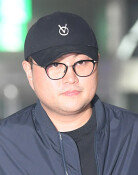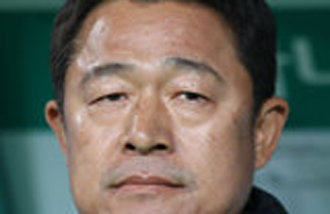Int`l media stresses China`s role in tackling NK attack
Int`l media stresses China`s role in tackling NK attack
Posted November. 25, 2010 11:39,
News media in the U.S., Europe, Hong Kong, the Middle East and other regions urged China Wednesday to play a role in tackling North Koreas artillery attack on South Koreas Yeonpyeong Island.
Official Chinese media, however, carried North Koreas claims on the attack first, emphasizing the exchange of fire between the two Korea.
The Hong Kong daily Ming Pao said the Norths existence might look beneficial to China on the surface but will prove a burden in the end, adding Beijing must think carefully before getting entangled further.
The daily said, How long can a regime that causes disruption through a method nobody accepts by banking on mere luck survive?
China is at a crossroads to choose between a country of blood-bound relationship and the fate of the nation and its people, Ming Pao added.
The South China Morning Post said, China has been shot a stray bullet due to the Norths attack on the South.
It also quoted Chinese diplomats as saying Beijing will find itself in a more difficult situation than that following the sinking of the South Korean naval vessel Cheonan in March.
Global media initially focused its attention on South Koreas counterattack, but the world has grown suspicious of China, North Koreas lone brother and strategic partner.
The Post satirically said, A barking dog is good at shooing away a stranger but can often bite the owner as well.
Zheng Hao, a commentator of Phoenix Satellite TV, said, This incident has put China in a situation more difficult than any other neighboring country. China and North Korea have had frequent exchanges of top officials this year and demonstrated their close ties, with the top official of the Chinese Peoples Liberation Army attending the Norths ceremony for the 60th anniversary of Chinas participation in the Korean War. But the North staged a military act without considering Chinas international ties.
China faces a very embarrassing and difficult situation, he said. If North Korea fails to convince China to adequately understand its latest aggression, it will embrace a perplexing situation.
The Wall Street Journal said how China will respond to the Norths aggression is the core focus of global attention.
In an article headlined North Koreas Latest Horror Show, The Washington Post said, Predictably, China is responding to the latest incident by refusing to blame North Korea and by calling for the renewal of the failed six-party negotiations. Beijing shouldn`t be allowed to hide behind that position.
The New York Times in the article China Faces a Nettlesome Neighbor in North Korea emphasized the importance of Chinas role, saying, This could strengthen the hand of critics of North Korea within China.
Quoting a China expert, the daily said, No matter whether it be within the party, among the people, or even within the military, China has grown increasingly sick and tired of North Koreas rogue politics, adding, But strategically, Chinas kidnapped by it.
Major European media had similar messages.
Dailies in the Middle East carried reports on the Yeonpyeong attack as front-page news. They urged China to be responsible, saying it holds the capacity to suppress the Norths military gamble.
In China, however, state-run media are approaching the matter not from the perspective of the North attacking the South, but from that of an inter-Korean exchange of fire. In other words, they seek to hold both countries responsible.
Xinhua News Agency initially carried reports with the headline Two South Korean soldiers die due to North Koreas artillery strike, but changed it to Two Koreas exchange fire in waters in west coast.
The Peoples Daily, the official newspaper of the Chinese Communist Party, CCTV and semi state-run dailies also changed the editorial tone of their news reports in a similar fashion.
CCTV and China National Radio reported Pyongyangs claims first, saying the attack was retaliation for a preemptive attack by Seoul, adding the Chinese Foreign Ministry must confirm.
mungchii@donga.com
Headline News
- Iran blames US sanctions for helicopter crash that killed president
- Pres. Yoon vetoes investigation into death of marine
- “Croatia Holds a Business Forum in Seoul…Looking forward to the development of trade relations”
- Samsung names new chief for semiconductor business
- Seoul City plans to expand welfare benefits







